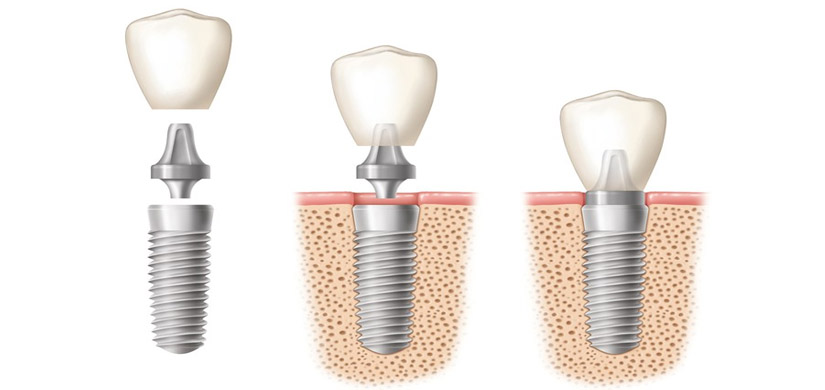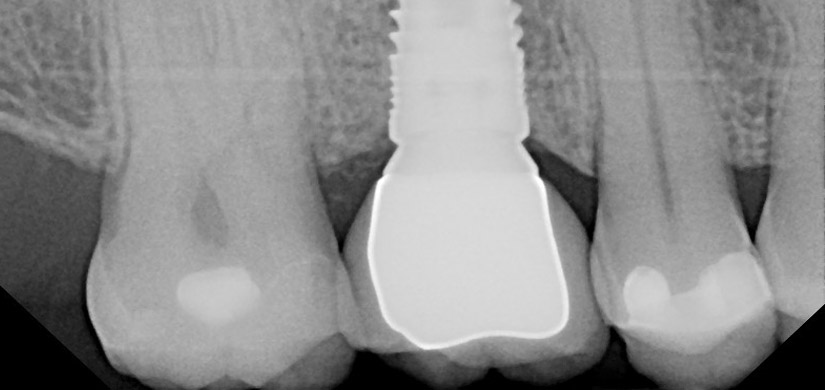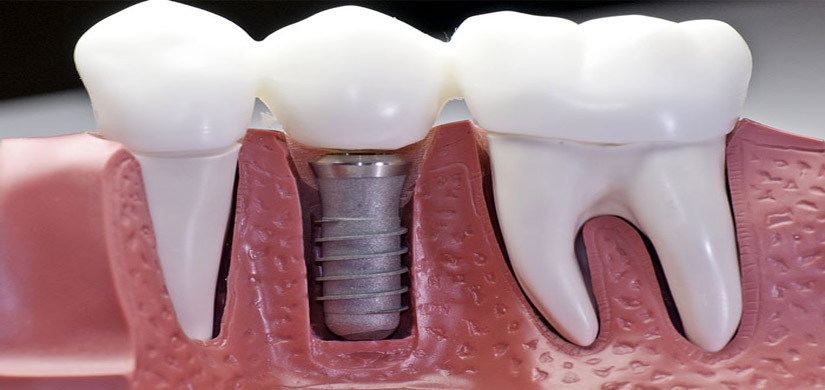DENTAL IMPLANTS: Teeth That Look and Feel Like Your Own
A dental implant is an artificial tooth root that a Dental Surgeon places into your jaw bone to hold a replacement tooth or a bridge.
When natural teeth are lost, a dentist could replace them by false teeth on a removable denture or a fixed bridge. Now new techniques have been developed that enable replacement teeth to be fitted into the jawbone. These structures are called Dental Implants, which are made of Titanium.
Dental implants are an ideal option for people in good general & oral health who have lost a tooth or teeth due to periodontal disease, an injury, or some other reason. Dental Implants are high-tech in nature and are more tooth-saving than traditional bridgework and do not require the grinding of adjacent teeth for support.
Dental implants are so natural looking and feeling; you may forget you ever lost a tooth. If you are missing one or more teeth and would like to smile, speak and eat again with comfort and confidence, there is good news! Dental implants are teeth that can look and feel just like your own! Under proper conditions and diligent patient maintenance, implants can last a lifetime. Long-term studies continue to show improving success rates for implants, and very infrequently fail.
Ideal Candidate for Dental Implants.
The ideal candidate for a dental implant should be in good general and oral health. Adequate bone in the jaw is needed to support the implant, and the best candidates have healthy gum tissues that are free of periodontal/gum disease. Dental implants are intimately connected with the gum tissues and underlying bone in the Jaw. There are some medical conditions that warrant special consideration before placing dental implants. Certain chronic diseases, heavy smoking or alcohol abuse may contraindicate dental implant treatment.
The Surgical Procedure (Two stage)
Intravenous sedation is offered for nervous patients.
For most patients, the placement of dental implants involves two surgical procedures. First, implants are placed within the jawbone. For the first three to six months following surgery, the dental implants beneath the surface of the gums gradually bond with the jawbone. One should be able to wear temporary dentures and eat a soft diet during this time.
After the implant has bonded to the jawbone, the second stage begins. The dental implants will be uncovered and small posts are attached. These posts protrude through the gums. The artificial teeth are placed on these posts and these posts will not be seen. The entire procedure usually takes three to six months. Most patients experience minimal disruption in their daily life.
Surgical Advances (Single Stage)
Using the most recent advances in dental implant technology, it is possible to place single stage implants. These implants do not require a second procedure to uncover them, but do require a minimum of six weeks of healing time before artificial teeth are placed. There are even situations where the implants can be placed at the same time as a tooth extraction – further minimizing the number of surgical procedures. Advances in dental implant technology have made it possible, in select cases, to extract teeth and place implants with crowns at one visit. This procedure, called “immediate loading,” greatly simplifies the surgical process.
Do Implants need special care ?
Once the implants are in place, they will serve you well for many years if you take care of them and keep your mouth healthy. This means taking the time for good oral hygiene (brushing and flossing) and keeping regular appointments with your dental specialists. Dental implant fail more in a smoker than a non-smoker as the smoking causes gum diseases.






